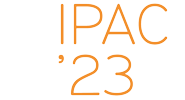Speaker
Description
The proposed Targeted Alpha Tumor Therapy and Other Oncological Solutions (TATTOOS) facility at the Paul Scherrer Institute aims to produce radionuclides, especially alpha-emitters, via proton-induced spallation for potential clinical studies of advanced cancer treatments. This new 100 microA / 590 MeV proton beamline delivers in the best-case scenario 26 kW to the target.
In this study, a numerical CFD model for the TATTOOS target was developed. The boundary condition to this model is the energy deposition calculated with the particle transport Monte Carlo method.
Since the operation temperature of the target is up to 2900 degree Celsius, close to the melting point of Ta, to enable the diffusion of the radionuclides, the temperature distribution of the target has to be well predicted. As it is not possible to cool the target directly, the main cooling is by radiation. For this reason, it is important to optimize the geometry of the target by maximizing the surface area.
The incoming Gaussian beam will induce an inhomogeneous temperature distribution on the spallation target, consisting of stacked discs. To ensure that the temperature of the target is within the acceptable limits, a twofold optimization strategy was selected. Firstly, the inner geometry of the target was optimized using a genetic algorithm, to ensure uniform power deposition. Secondly, a more spread “wobbled” beam and a large outer surface area will be used.
| I have read and accept the Privacy Policy Statement | Yes |
|---|

